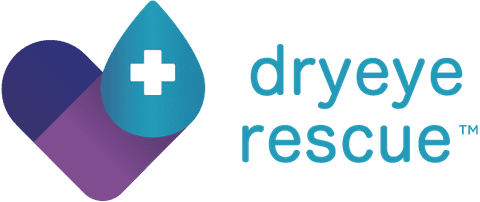
As we grow older, our eyes undergo various changes that can lead to a range of age-related eye diseases. These conditions can significantly impact your vision, making it more challenging to perform everyday tasks and enjoy your daily life. Understanding the role of nutrition in preventing these eye diseases is crucial for maintaining optimal vision and eye health.
Common Age-Related Eye Diseases and Their Impact on Vision
Cataracts: A clouding of the eye's natural lens, which can lead to blurred or distorted vision, glare, and difficulty seeing at night.
Age-Related Macular Degeneration (AMD): A condition that affects the macula, the part of the eye responsible for central vision, leading to gradual vision loss and difficulty with reading, driving, and recognizing faces.
Glaucoma: An increase in eye pressure that can damage the optic nerve, resulting in peripheral vision loss and eventually, complete blindness if left untreated.
Diabetic Retinopathy: A complication of diabetes that damages the blood vessels in the retina, potentially leading to vision impairment and even blindness.
These age-related eye diseases can have a significant impact on your quality of life, making it challenging to perform daily activities, maintain independence, and enjoy hobbies and social interactions. Recognizing the importance of proactive measures, such as incorporating key nutrients into your diet, can help you take control of your eye health and reduce the risk of developing these age-related eye problems.
Understanding the Role of Nutrition in Preventing Eye Diseases
Nutrition plays a crucial role in maintaining optimal eye health and preventing age-related eye diseases. Specific nutrients have been shown to have a positive impact on various aspects of eye function, from protecting the eyes from oxidative stress to supporting the health of the retina and lens.
By incorporating these key nutrients into your diet, you can take proactive steps to reduce your risk of developing age-related eye diseases and maintain clear, sharp vision as you grow older. Understanding the role of nutrition in eye health can empower you to make informed choices and take control of your visual well-being.
Key Nutrients for Optimal Vision and Eye Health
Antioxidants: Vitamins C and E, carotenoids like lutein and zeaxanthin, and the mineral zinc are all powerful antioxidants that can help protect the eyes from oxidative damage and reduce the risk of conditions like cataracts and AMD.
Omega-3 Fatty Acids: These healthy fats, found in foods like fatty fish, walnuts, and flaxseeds, can help reduce inflammation and support the health of the retina and optic nerve.
Vitamin A: This essential nutrient is crucial for maintaining the cornea, the clear front part of the eye, and supporting night vision.
B Vitamins: Vitamins B6, B9 (folate), and B12 play a role in maintaining healthy blood vessels in the eyes and reducing the risk of conditions like AMD and diabetic retinopathy.
Minerals: Zinc, copper, and selenium are important minerals that contribute to various eye functions, from protecting the eyes from oxidative stress to supporting the health of the retina and lens.
Incorporating a balanced, nutrient-rich diet that includes these key eye-friendly nutrients can help you maintain optimal vision and reduce your risk of age-related eye diseases.
Foods to Incorporate for Eye Health
Leafy Greens: Spinach, kale, and collard greens are rich in lutein and zeaxanthin, two carotenoids that can help protect the eyes from harmful blue light and reduce the risk of AMD.
Fatty Fish: Salmon, tuna, and mackerel are excellent sources of omega-3 fatty acids, which can help reduce inflammation and support retinal health.
Citrus Fruits: Oranges, lemons, and limes are high in vitamin C, a powerful antioxidant that can help protect the eyes from oxidative damage and reduce the risk of cataracts.
Nuts and Seeds: Almonds, walnuts, and flaxseeds are good sources of vitamin E, zinc, and omega-3 fatty acids, all of which are important for eye health.
Bell Peppers: These vibrant vegetables are rich in vitamin C and can help support the health of the cornea and reduce the risk of age-related eye diseases.
Consulting an Optometrist for Supplements and Personalized Advice
While a balanced, nutrient-rich diet is essential for maintaining eye health, your optometrist may also recommend specific eye health supplements to address any individual needs or deficiencies. These supplements can provide additional support for your eyes, complementing the benefits of a healthy diet.
Your optometrist can assess your overall eye health, consider any risk factors you may have, and provide personalized recommendations for supplements that may be beneficial for you. They can also guide you on the appropriate dosages and help you monitor the effectiveness of these supplements over time.
Regular eye exams with your optometrist are crucial for detecting any age-related eye diseases early and developing a comprehensive plan to maintain your visual well-being. By working closely with your eye care professional, you can take proactive steps to preserve your vision and enjoy the benefits of optimal eye health.
Taking Proactive Steps for Eye Health
Maintaining optimal vision and eye health is a lifelong journey, and incorporating the right nutrition into your diet is a key component of this process. By understanding the role of key nutrients in preventing age-related eye diseases, you can take proactive steps to protect your eyes and reduce your risk of developing conditions like cataracts, AMD, glaucoma, and diabetic retinopathy.
Take control of your eye health by incorporating these key nutrients into your diet today. Schedule an appointment with Eyecare & Aesthetics to discuss your personalized eye health plan and ensure you're doing everything you can to maintain optimal vision as you age. Visit our office in Los Angeles, California, or call (310) 670-1888 to book an appointment today.












